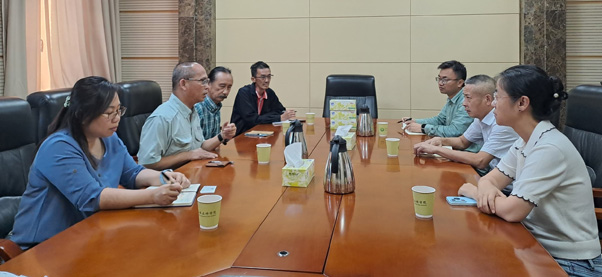The main producers of tropical fruits in China are located in the southern provinces such as Hainan, Guangxi, Yunnan, and Guangdong. Recently, TFNet organized a study visit for officers from the Department of Agriculture, Malaysia, to Guangdong province to observe current practices in the production of tropical fruits, including bananas, papayas, citrus, and dragonfruit. In Malaysia, the cultivation of these fruit types has declined due to pest and disease problems. Recognizing these challenges, efforts are now being considered to reinvigorate the cultivation of these fruits.
The collaboration between TFNet and the Guangdong Academy of Agricultural Sciences (GDAAS) resulted in a study visit from 5 to 9 November 2024 for officers from the Malaysian Department of Agriculture to Guangzhou, China. The visit was facilitated by TFNet advisor, Mr. Yacob Ahmad.
The officers from the Malaysian Department of Agriculture were:
• Mr. Christopher John Biai, Director, Crop Industry Development Division
• Mr. Ho Then Fook, Senior Agriculture Officer, Crop Industry Development Division, Selangor
• Ms. Nuruljannah Alias, Assistant Director, Crop Industry Development Division
• Ms. Ting Ping Ping, Agricultural Counsellor on Trade and Investments, Beijing
The purpose of the study visit was to:
• Learn about the research and development focus on papayas, bananas, citrus, and other tropical fruits in Southern China
• Observe varietal performances of these fruit crops and best farm practices
• Share experiences on pest and disease management of papayas, bananas, and other tropical fruits
• Share experiences on postharvest management of these fruits
• Evaluate current market trends in the Chinese durian trade
On the first day, a visit was arranged to a papaya farm in the Gaoming district, Foshan, which showcased a relatively new papaya variety developed by the Fruit Tree Research Institute, GDAAS. This hybrid variety is better in taste and production than existing varieties and is relatively tolerant to Papaya Ring Spot Virus (PRSV). It is also propagated by tissue culture for distribution.
A meeting with the Vice President of GDAAS, Dr. Yi Ganjun, and accompanying officers was scheduled to discuss future collaboration, planting material, and technology exchange between the Academy and the Malaysian Department of Agriculture.
The following day, a visit was arranged to a 13-hectare dragonfruit farm (Green Hill Corporation) to observe the trellis system of planting and learn about the challenges of managing the farm. The farm also utilizes partial shading to minimize scorching, which can cause diseases.
A visit to the premises of a fruit importer (Guangzhou Fengshan Trading) provided insights into the durian business in China. Points raised included the insufficient supply of durians from Malaysia, despite its lucrative market. Discussions also touched on the quality of the imported fruits.
The third field visit was to a 120-hectare banana farm growing the traditional Cavendish ‘Baxi’ variety. This well-managed, disease-free farm practices good waste management by incorporating dead banana stems into the soil after harvest.
Lastly, a trip to the Jiangnan fruit wholesale market gave the group a glimpse of the current fruit types and varieties imported and available during the end-of-year season.









